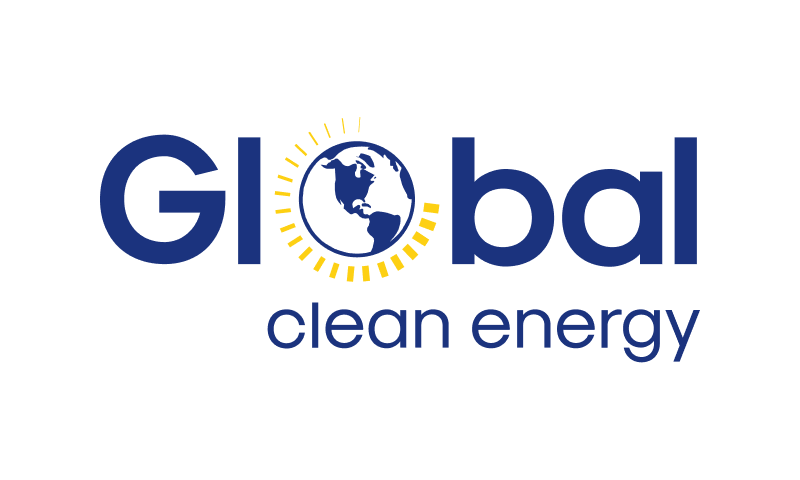
Global Clean Energy Signs $30 Million USDA Climate-Smart Commodities Grant Kickstarting Implementation of the Climate-Smart Camelina Project
Published by Todd Bush on June 5, 2023
LOS ANGELES--(BUSINESS WIRE)--Global Clean Energy Holdings, Inc. (OTCQB:GCEH) and the United States Department of Agriculture (USDA) have signed a contract for the Partnerships for Climate-Smart Commodities Grant for their Climate-Smart Camelina Project. With the signing, work can officially begin on their $30 million pilot project to measure and validate the advantages of Camelina sativa (camelina) as an ultra-low carbon nonfood renewable fuel feedstock.
>> In Other News: Chart Industries, Inc. and Crane Company Successfully Test a New Liquid Hydrogen Valve
Climate-Smart Camelina is a large-scale pilot project to implement, measure, and validate the climate advantages of camelina in both rotational (e.g., on fallow acres) and winter crop (e.g., in a double-crop rotation) production systems. The project will accelerate farmers’ adoption of camelina grown to produce feedstock for renewable biofuels and chemicals without causing land-use change and while increasing carbon capture in the soil. Further, the project will support market development to provide additional revenue streams to growers and provide a premium for this low carbon intensity crop.
“We’re excited to begin this important work to help prove what we have known internally for years – that camelina has the potential to be the lowest carbon intensity feedstock option on the market,” Chief Executive Officer of Global Clean Energy Richard Palmer said. “The environmental benefits of camelina are substantial, and with the data collected from this effort, the growth of camelina adoption can accelerate along with the confidence of growers.”
The project entails a range of measurements at different spatial and temporal scales integrated into metrics which will evaluate the production efficiency and carbon intensity of the biofuel generated, as well as soil carbon sequestration and general agronomic best practices. The key highlights for this project are the use of multiple methods of data collection to cross reference approaches, calibrate sensors, and validate models for long-term low-cost scalability. In the end, this project aims to offer several benefits to growers and the environment, including:
- Increasing overall soil health;
- Increasing the total carbon sequestered within soils;
- Decreasing the carbon intensity associated with growing camelina;
- Obtaining more accurate measurements to prove environmental benefits of growing camelina;
- And providing growers with access to affordable and reliable measurements.
Global Clean Energy owns the world’s largest camelina patent and intellectual property portfolio. Their wholly owned subsidiary, Sustainable Oils, Inc., contracts directly with farmers to grow camelina currently in key regions of the U.S. including Colorado, Idaho, Kansas, Montana, Nebraska, North Dakota, Oklahoma, Oregon, and Washington. Camelina grain is grown for use as a source for Global Clean Energy’s ultra-low carbon renewable fuels produced from their Bakersfield Renewable Fuels refinery in California.
The USDA Climate-Smart Commodities announcement can be accessed here.
ABOUT GLOBAL CLEAN ENERGY
Global Clean Energy Holdings, Inc. (OTCQB:GCEH) is a vertically integrated renewable fuels business that is focused on reducing carbon emissions sustainably through proprietary nonfood camelina varieties – delivering among the lowest carbon intensity renewable fuel in the marketplace. Global Clean Energy’s strategy since inception has been to control the full integration of the renewable fuels supply chain from science to seed and farm to fuel. They aim to operate the development, production, processing, and transportation of feedstocks, to the refining and production of renewable fuels. Global Clean Energy will process their proprietary nonfood camelina feedstock at their Bakersfield, California renewable fuels refinery, yielding a renewable diesel that is chemically identical to petroleum diesel, but with 80+ percent lower carbon emissions. Global Clean Energy’s proprietary camelina varieties are the only nonfood renewable feedstock on the market certified for both the U.S. EPA’s Renewable Fuel Standard and California’s Low Carbon Fuel Standard. More information can be found at www.gceholdings.com.
Subscribe to the newsletter
Daily decarbonization data and news delivered to your inbox
Follow the money flow of climate, technology, and energy investments to uncover new opportunities and jobs.
Latest issues
-
5 Key Carbon Removal Innovations That Shaped 2024
Inside This Issue 🌍 5 Key Carbon Removal Innovations That Shaped 2024 🧪 New Material Could Capture Millions of Tonnes of Atmospheric Carbon 💰 DOE Re-opens Funding Opportunity, Making $500 Million ...
-
OCED Announces up to $1.8 Billion in New Funding for Transformational Direct Air Capture Technologies
Inside This Issue 💰 OCED Announces up to $1.8 Billion in New Funding for Transformational Direct Air Capture Technologies 🌱 BP Announces Investment Decision for “Lingen Green Hydrogen” Project 🧪 C...
-
ExxonMobil Partners with Worley for Blue Hydrogen Facility in Texas
Inside This Issue 🌊 ExxonMobil Partners with Worley for Groundbreaking Blue Hydrogen Facility in Texas 🏗️ Holcim Group to Test Capsol’s Carbon Capture Technology as a Step Towards Decarbonized Cem...
Company Announcements
-
Carbon Removal Tech Startups Leading the Way in Sustainability
Startups like Equatic and Climeworks are revolutionizing the carbon removal landscape with innovative technologies that aim to reduce atmospheric CO2 levels. These companies not only help business...
-
Cutting Carbon: U.S. Advances Ambitious Climate and Hydrogen Goals
The United States is doubling down on its efforts to tackle climate change with bold new targets and strategies. On December 19, 2024, President Joe Biden announced a groundbreaking plan to reduce...
-
MAX Power Identifies Multiple Natural Hydrogen “Fairways” In Saskatchewan, Gears Up For Drilling
VANCOUVER, British Columbia, Dec. 24, 2024 (GLOBE NEWSWIRE) — MAX Power Mining Corp. (CSE: MAXX; OTC: MAXXF; FRANKFURT: 89N) (“MAX Power” or the “Company”) is pleased to provide the following corpo...
-
Energy Research , Solving the Power Loss Problem in Large-Scale Processes by Developing Bio-Electrolysis Cells Using Independent Technology 1.8 times more electron production and 1.2 times mor...